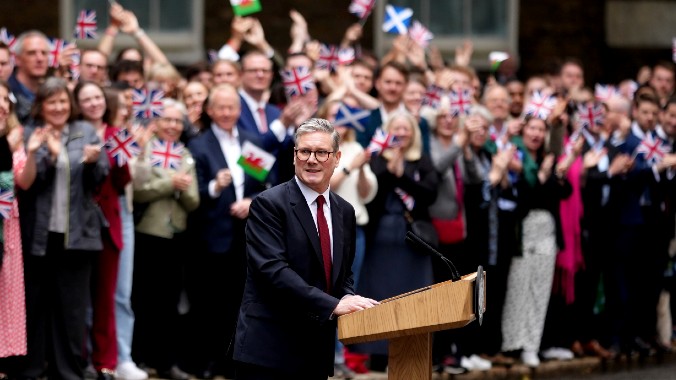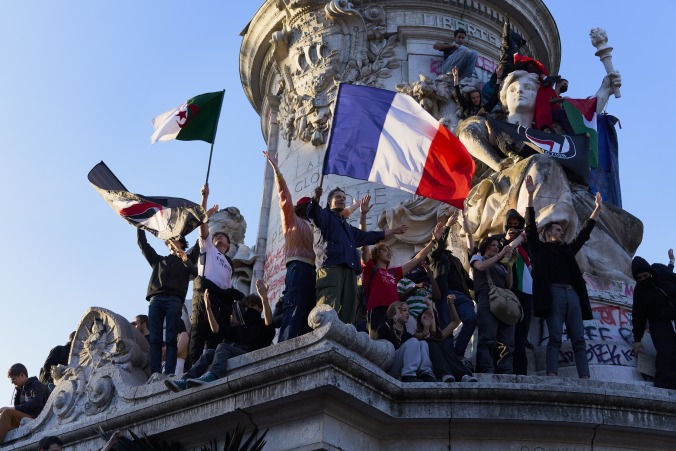At Least 2 Countries Are Enjoying Election Results That Aren’t Soul Crushing
If you’ve been too busy mainlining (or avoiding) American political news, here’s a recap to get you up to speed on politics beyond these 50 states.
Politics
But beyond the Biden prognostication, there’s been a bright spot on the politics front. Multiple, in fact. Citizens of the United Kingdom and France not only got to vote in elections held mere weeks after they were called (instead of the American months-if-not-years-long electoral process) but they…made good choices?? On July 4, British voters declared their freedom from nearly 15 years of Conservative governments by voting in the Labour Party and making Keir Starmer prime minister. And on July 7, French voters delivered a shock victory to the left, relegating the far-right (and presumptive winner) to third place. Good news can still exist, it seems.
If you’ve been too busy mainlining American political news (or if you’re smart and have chosen to look away until absolutely necessary), here’s a recap to get you up to speed on politics beyond these 50 states.
Give me the basics about this U.K. election.
According to British law, a general election must be held every five years (if not sooner). The last time Brits went to the polls was December 2019, so there pretty much had to be an election sometime this year. On May 22, (now former) Prime Minister Rishi Sunak, a Conservative (aka Tory), called a vote for July 4.
Since the election four-and-a-half years ago, there had been three Conservative prime ministers, each uniquely bad at governing. Floppy-haired Boris Johnson held parties at the prime minister’s residence during lockdown, while regular British people were threatened with fines if they gathered indoors; Liz Truss loves cutting taxes so much she almost bankrupted the country and lasted just 49 days as prime minister; and Rishi Sunak has the charisma of an over-cooked zucchini and is obscenely rich—the type of rich that means you’d never have to work another day in your life, so why on earth would you subject yourself to the scrutiny of the political press??
In May, just 18% of voters said they planned to vote for the Tories. People were ready to be rid of them.
Why did I see so many memes about it?
Honestly…British politics is just really memeable. Then-Labour leader Ed Miliband basically lost the 2015 election because he ate a sandwich so weirdly that it went viral.
Sunak announced the election at a podium outside of 10 Downing Street in the pouring rain, while someone nearby played “Things Can Only Get Better” so loudly that the TV cameras picked it up.
Boris Johnson looks like this.
That’s all I can tell you.
-

-

-

-

-

-

-

-

-

-

-

-

-

-

-

-

-

-

-

-

-

-

-

-

-

-

-

-

-

-

-

-

-

-

-

-

-

-

-

-









































